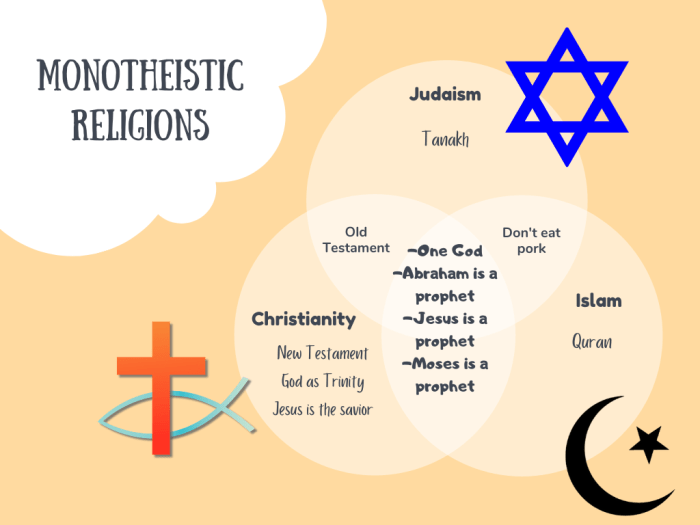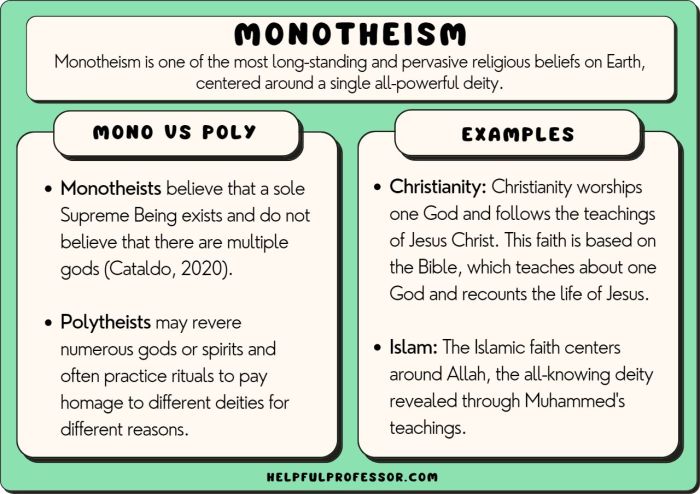Five similarities between judaism and christianity – Five striking similarities between Judaism and Christianity, two of the world’s most influential religions, have shaped their beliefs, practices, and the lives of their followers for centuries. From their shared origins and monotheistic beliefs to their sacred texts and ethical teachings, these religions exhibit remarkable parallels that have fostered a deep connection between them.
These similarities not only provide a glimpse into the historical and cultural interconnections between Judaism and Christianity but also highlight the profound impact they have had on human civilization.
1. Shared Origins and Historical Context

Judaism and Christianity share a common historical and cultural foundation. Both religions emerged from the ancient Near East and were influenced by the same cultural, religious, and philosophical traditions. Judaism, the older of the two, originated in the ancient kingdom of Israel around the 10th century BCE.
Christianity emerged as a distinct religion within Judaism in the 1st century CE, following the teachings of Jesus of Nazareth.
Over the centuries, Judaism and Christianity have interacted and influenced each other. The Christian Bible includes the Hebrew Bible (Tanakh) as its Old Testament, and many of the ethical and moral teachings of Christianity are rooted in Judaism. Additionally, both religions share a common understanding of the history and events of the ancient Near East, such as the Exodus and the Babylonian exile.
2. Monotheism and Belief in One God
Judaism and Christianity are both monotheistic religions, believing in one God who is the creator and ruler of the universe. In Judaism, God is known as Yahweh or Elohim, and is believed to be transcendent and unknowable. Christianity believes in the Trinity, which includes God the Father, Jesus the Son, and the Holy Spirit.
Both religions emphasize the importance of worshipping God alone and obeying his commandments. They believe that God is just and merciful, and that he has a covenant with his people. In Judaism, the covenant is based on the Ten Commandments, while in Christianity, the covenant is based on the teachings of Jesus Christ.
3. Sacred Texts and Scripture

The Tanakh (Hebrew Bible) is the sacred text of Judaism, and consists of the Torah (the first five books of the Bible), the Prophets, and the Writings. The Christian Bible is divided into the Old Testament (which includes the Tanakh) and the New Testament, which includes the Gospels, the Acts of the Apostles, the Epistles, and the Book of Revelation.
Both religions believe that their sacred texts are the inspired word of God and contain the teachings and instructions necessary for salvation. They use these texts for guidance in their daily lives and for worship.
4. Ethical Teachings and Moral Values

Judaism and Christianity share many ethical teachings and moral values, such as the importance of love, compassion, justice, and forgiveness. Both religions emphasize the importance of treating others with respect and dignity, and of caring for the poor and needy.
In Judaism, the ethical teachings are found in the Torah and the Talmud, while in Christianity, they are found in the Gospels and the teachings of the apostles. Both religions believe that following these ethical teachings is essential for living a righteous and fulfilling life.
5. Religious Practices and Rituals: Five Similarities Between Judaism And Christianity
Judaism and Christianity have many similarities in their religious practices and rituals. Both religions observe Sabbath, a day of rest and worship, and both have festivals and holidays that celebrate important events in their history.
In Judaism, the most important religious rituals are the daily prayers, the weekly Sabbath, and the annual festivals. In Christianity, the most important religious rituals are the sacraments, such as baptism, communion, and confirmation.
FAQ Insights
What is the most significant similarity between Judaism and Christianity?
Both Judaism and Christianity share a belief in one God, known as monotheism, which forms the cornerstone of their respective faiths.
How do the sacred texts of Judaism and Christianity differ?
While both religions revere sacred texts, Judaism’s primary scripture is the Tanakh (Hebrew Bible), while Christianity’s is the Christian Bible, which includes the Old Testament (based on the Tanakh) and the New Testament.
In what ways do the ethical teachings of Judaism and Christianity align?
Both Judaism and Christianity emphasize ethical conduct and moral values, including compassion, justice, and love for one’s neighbor, as Artikeld in their respective sacred texts.